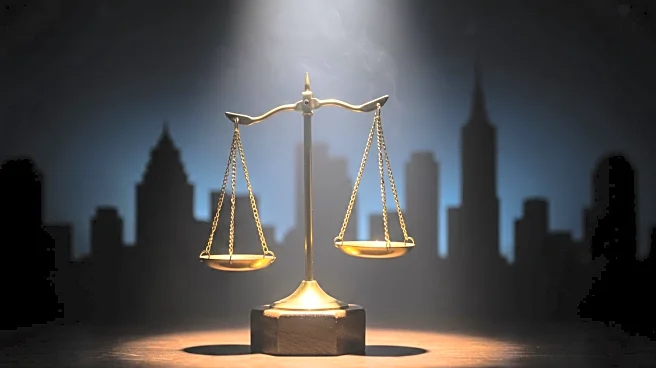What's Happening?
New Orleans Mayor LaToya Cantrell has been indicted by a federal grand jury, marking a historic moment as she becomes the first sitting mayor of the city to face federal charges. The indictment, issued by the U.S. District Court, Eastern District of Louisiana, includes multiple charges against Cantrell and Jeffrey Paul Vappie, II, a member of her Executive Protection Unit. The charges include conspiracy to commit wire fraud, wire fraud, conspiracy to obstruct justice, obstruction of justice, false statements, and false declarations before a grand jury. The indictment alleges that Cantrell and Vappie engaged in a scheme to defraud the City of New Orleans by conducting personal activities during Vappie's duty hours, which were billed to the city. This included 14 out-of-state trips purportedly for safety concerns, costing the city over $70,000. Additionally, the indictment claims misuse of a city-owned apartment for personal purposes and efforts to obstruct the investigation through encrypted messaging and deletion of evidence.
Why It's Important?
The indictment of Mayor Cantrell is significant as it highlights issues of corruption and misuse of public funds within the city administration. This development could have substantial implications for public trust in local government and may affect Cantrell's political career and the governance of New Orleans. The charges, if proven, could lead to legal consequences for Cantrell and Vappie, impacting their professional futures. Moreover, the case underscores the importance of accountability and transparency in public office, potentially prompting reforms in how city officials are monitored and held accountable for their actions.
What's Next?
The City of New Orleans has acknowledged the indictment and stated that Mayor Cantrell's attorney is reviewing the charges. As the legal process unfolds, Cantrell may face trial, which could lead to further revelations about the extent of the alleged misconduct. The city administration may need to address the fallout from the indictment, including potential changes in leadership and policy reforms to prevent similar issues in the future. Stakeholders, including city officials and residents, will likely be closely monitoring the situation as it develops.
Beyond the Headlines
This case may have broader implications for the political landscape in New Orleans and beyond, as it raises questions about ethical standards and the integrity of elected officials. The use of encrypted messaging and deletion of evidence points to challenges in investigating and prosecuting public corruption, highlighting the need for robust legal frameworks and investigative tools. The indictment could also influence public discourse on the role of personal relationships in political decision-making and the potential for conflicts of interest.









